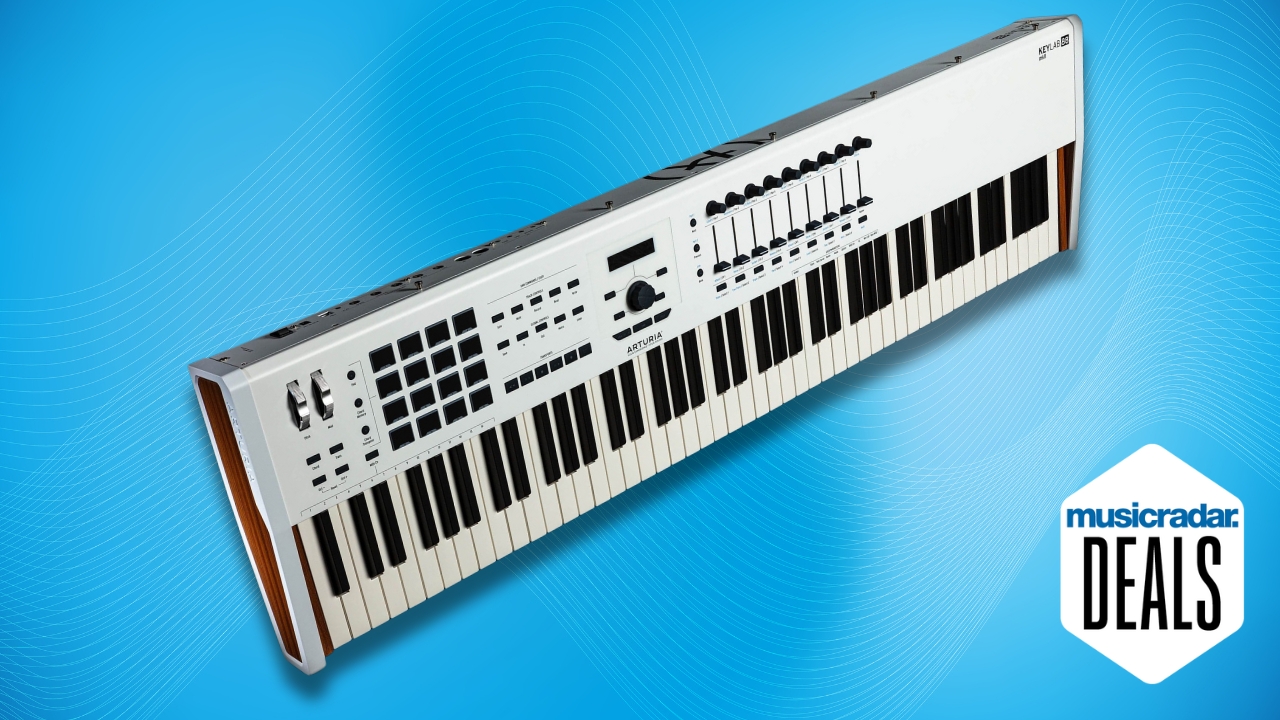Miyavi on inspiration and The Others: "The guitar is a key, something that can take you anywhere"
The world-conquering Osaka-born guitar hero speaks
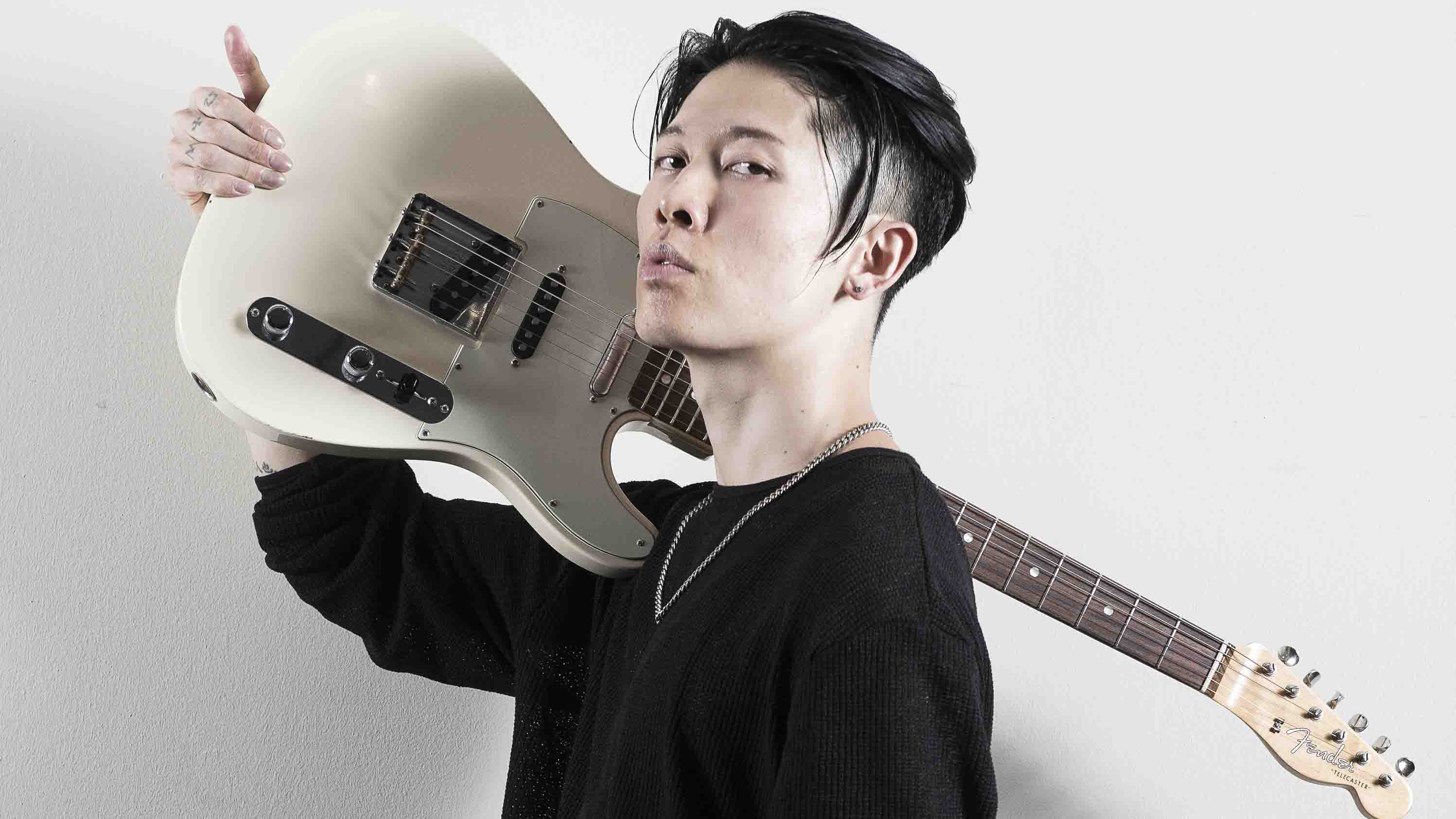
Introduction
A household name in his native Japan and fast becoming one across the globe, Miyavi is a lot more than your average guitarist.
The 34 year-old formed his own production company J-Glam in 2009 and made his international film debut starring in last year’s Angelina Jolie-directed and BAFTA-winning Unbroken, rising to prominence while putting the final touches to eighth album proper, The Others.
The self-proclaimed ‘samurai guitarist’ has long favoured a different approach to his instrument utilising slap techniques
Recorded in Nashville, it’s an album full of surprises - fusing together different elements of rock, dance, pop, blues, metal, funk… you name it. But most surprising is how effortlessly cohesive it feels - bending genres to his will, instead of following formulas tried and tested.
In fact, the self-proclaimed ‘samurai guitarist’ has long favoured a different approach to his instrument, utilising slap techniques more associated with our four-string siblings. We sit down with a musician who exists to defy convention…
What made you decide guitar was the instrument for you?
“I starting playing guitar when I was 15, right after I gave up my dream to become a professional soccer player. In Junior High I was in the youth team, chasing that football every single day. But I got injured and had to leave the team.
“In that time I was starting to learn about many things - like girls - basically just growing up into an adult. After leaving the team, I felt like I had nothing to get into or get me excited. And that was huge to me… I didn’t realise just how much of a percentage of me was in football.
“I lost confidence and had no dream, no direction. Then I started playing guitar in a band just for fun. As soon as I touched that guitar, I could picture myself playing to huge crowds under the spotlight. That was huge and it still motivates me to keep improving and moving forward today.”
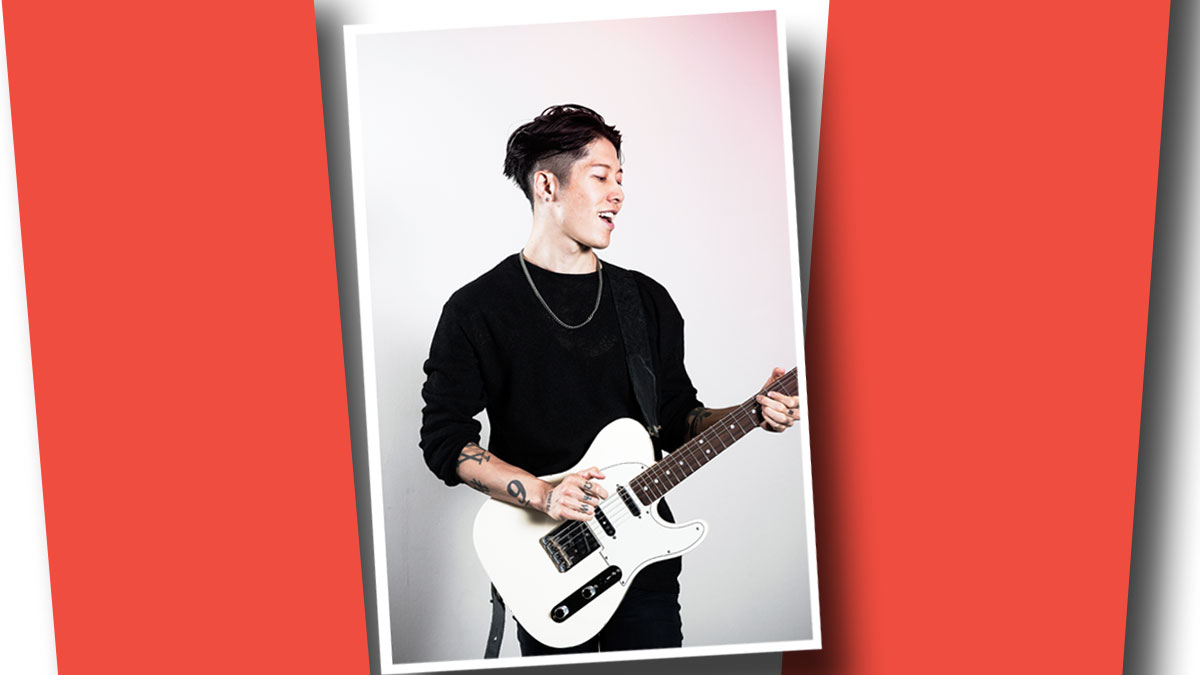
Seasonal inspiration
And who were your musical heroes when you first started out?
“There were many. The reason I got into guitar was creativity, it was the same as playing football. You can make, you can create, you can go anywhere you want. To me, that’s magical.
“I really like Stevie Ray Vaughan and Buddy Guy because of their attitudes to the audience, they were trying to entertain and get people excited. It’s really positive and that’s really important. We are not just playing guitar, it’s a delivery, an energy exchange with the audience at the concert. I love how those two players dedicated themselves to the audience.
It’s not just an instrument to me, it’s a key… something that can take you anywhere
“Naturally I was influenced by blues guys like Robert Johnson or BB King - those progressions were really simple but also really deep. Also Michael Hedges, Ani DiFranco, Tommy Emmanuel… players that are very close to their instrument.”
What was it like growing up in Osaka and how much do you think it affected your music?
“Osaka is Osaka! I was just chasing that soccer ball every single day of my life. Or girls! Of course I like the city, it’s really lively and people are energetic. It’s very friendly also. The location, the weather, the food, great personalities… makes for more depth.
“In Japan like the UK we have seasons, which is great for inspiration. But I was always thinking about where I should go. I was looking for something, even before I quit playing soccer, and the guitar took me here. It’s brought my art and music all over the world. It’s not just an instrument to me, it’s a key… something that can take you anywhere.
In Japan it’s cool to be influenced by Western culture. But I also realise we need to have something that is original
“In Japan, people think it’s cool to be influenced by Western culture. But I also realise we need to have something that is original. People won’t want to listen to Japanese music that is just a copy. It needs to be different. People don’t listen to music to feel sad, they want excitement and fun. That brings hope which takes you further into the future. To me, creating something new is related to our future.”
You play in a duo with a drummer, how difficult is it being the only musician on stage producing melodic content?
“There’s more freedom, you don’t need to be restricted by anything. Now we’ve been using a lot of Pro Tools, with synth bass or keys or backing vocals. But the reason I started playing with just a drummer on stage is freedom… it’s easy. And also low budget!
“My style of playing is more like a bass player, that’s why I hook up into a bass amp too. It makes sense to me, and of course in the future I might add more people on stage, but as for now I’m enjoying it. You can be lean, simplify the stage and don’t need things you don’t need.”
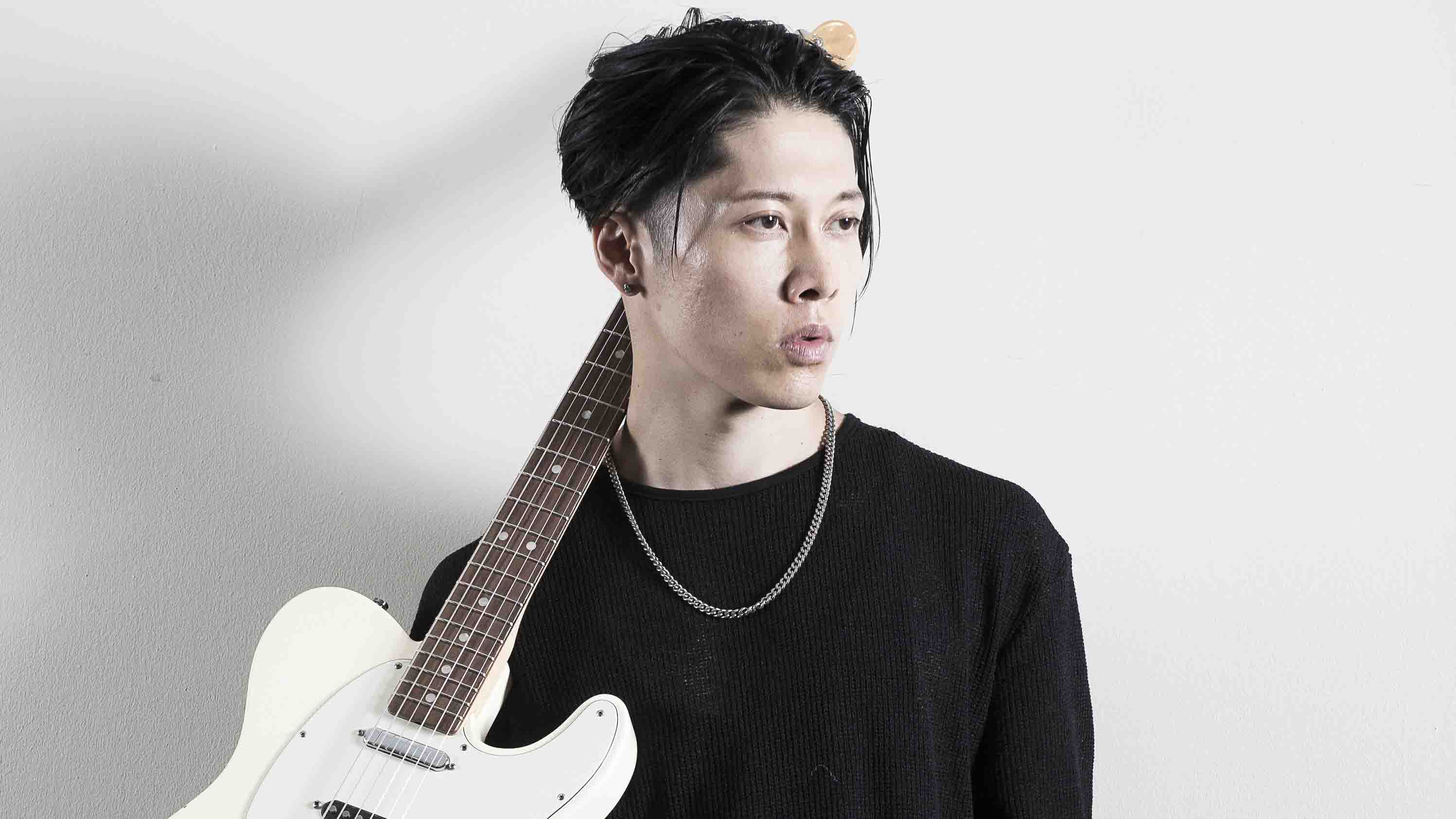
Nashville nights
So how exactly do you go about splitting your signal?
“I use a Marshall JCM800, just a classic amp. I prefer it to the 900, it’s drier and more direct. It sounds more solid to me and the frequency of it is very specific. It’s made for bands, to really cut through. That’s one of the amps.
We create music because there’s something we want to share with people that can’t be explained with words
“Another is the Fender Super Reverb or Super Sonic Twin I use as a clean amp, with a fuzz pedal. And then there’s a drop tune feed going into the Ampeg bass amp, which is fairly basic. I don’t need a characteristic bass sound because it just supports my guitars, which is where my tone comes from.”
You recorded your new album in Nashville. That must have been very different…
“It was fun but at the same time I struggled. I suffered a lot, especially since moving to LA. Everything was different, new languages, situations… it all felt unfamiliar to me. Then my kids started going to school so I had more responsibilities as a parent.
“Talking about the album, doing promotion for the film as an actor, I became responsible for all these different things that were important to my life. So it felt really bizarre in Nashville. Being sat at a bar, having a beer, listening to country music… which I’m not familiar with at all. It was like, ‘Woah! I’m on a different planet!’
“Then when I went into the studio with the producers, Drew Ramsey and Shannon Sanders, I was blown away. I was so inspired by their attitudes, as an artist or creator, it was so pure. It wasn’t for business. And a lot of things are business, budgets, release dates, numbers, popularity… but we don’t care, actually.
“We don’t have to care, but the system of the music business tries to make us feel like we need to. We create music because there’s something we want to share with people that can’t be explained with words. That’s the origin, the motivation of creation. As an Asian, I wanted to find my identity - the reason why there’s an Asian guy playing guitar. So I started slapping the strings…”
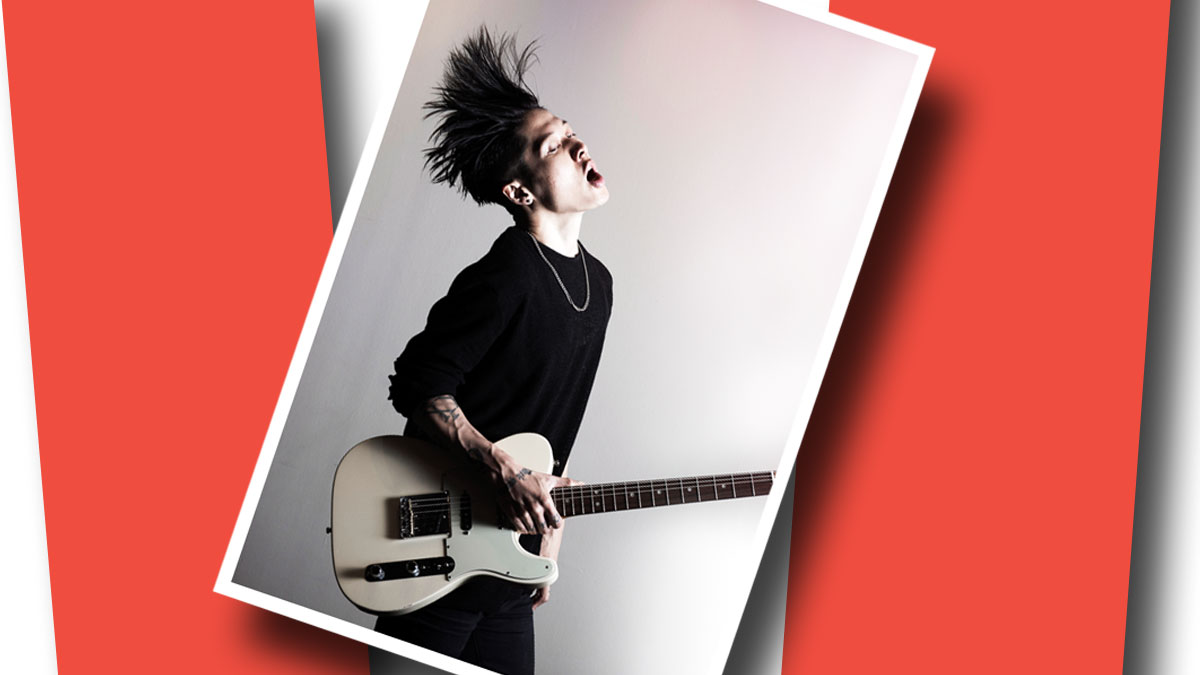
Fingerslapping fretting
And what inspired that signature fingerslapping technique?
“The idea of mixing traditional Japanese feeling and modern guitar really appealed to me. Technique-wise I’m heavily influenced by bass players, musicians like Marcus Miller, Larry Graham, Louis Johnson. Hitting strings is a very instinctive thing, that’s all you have to do and even my daughters can do it. They copy me!
My mission is to combine ideas. My role model is the California Roll sushi dish. [Traditionalists] won't like it... But it worked
“Also I’m still learning how to be in a groove, which is so important. Japanese culture is not about rhythm or groove, it’s about the moment. It’s hard to express that kind of thing in modern rock music, but it is what it is. My mission is to combine those ideas. My role model is the California Roll sushi dish. A Japanese sushi chef won’t like it, because it’s not genuine, it’s not original. It’s taboo… prohibited! But it worked.
“And around the world, there are many Japanese restaurants opening up all because that dish got popular. I have soy sauce, I have rice… I’m trying to find my avocado. Even on the last few albums, I’m still experimenting. I never give up. I will make it happen.”
Your guitar lines on the new album are very vocal, it almost doesn’t feel like a guitar…
“That’s my new direction. I don’t want to play guitar music. I want to bring back my own passion. The guitar is very spiritual, it’s a special thing for us. People just want to dance. That’s all. That’s why rock music, even jazz, funk… it’s all dance music, really. That’s what I’m trying to do as my California Roll. I was just want to make people dance with my guitar.
“That’s what I tried to do with the Mission: Impossible tune [Miyavi reworked it for the Japanese release of Mission: Impossible - Rogue Nation] it’s such an iconic theme, everyone knows it. But people have a hard time dancing to it, so I changed the rhythm from 5/8 to 6/8 to give it more of a downbeat.
“Look at what Skrillex did - he used to play in a rock band and now he’s a world-famous DJ. You don’t have to be restricted. So be close to your instrument and just keep on slapping. But make sure you’re only slapping the strings and not people!”
Miyavi’s new album, The Others, is out now on Virgin/Universal

Amit has been writing for titles like Total Guitar, MusicRadar and Guitar World for over a decade and counts Richie Kotzen, Guthrie Govan and Jeff Beck among his primary influences. He's interviewed everyone from Ozzy Osbourne and Lemmy to Slash and Jimmy Page, and once even traded solos with a member of Slayer on a track released internationally. As a session guitarist, he's played alongside members of Judas Priest and Uriah Heep in London ensemble Metalworks, as well as handling lead guitars for legends like Glen Matlock (Sex Pistols, The Faces) and Stu Hamm (Steve Vai, Joe Satriani, G3).
“Its mission is simple: unleash the power of any amplifier or line-level source without compromise”: Two Notes promises a “watershed” in tube amp control with the Torpedo Reload II
MusicRadar deals of the week: Enjoy a mind-blowing $600 off a full-fat Gibson Les Paul, £500 off Kirk Hammett's Epiphone Greeny, and so much more
“Its mission is simple: unleash the power of any amplifier or line-level source without compromise”: Two Notes promises a “watershed” in tube amp control with the Torpedo Reload II
MusicRadar deals of the week: Enjoy a mind-blowing $600 off a full-fat Gibson Les Paul, £500 off Kirk Hammett's Epiphone Greeny, and so much more











